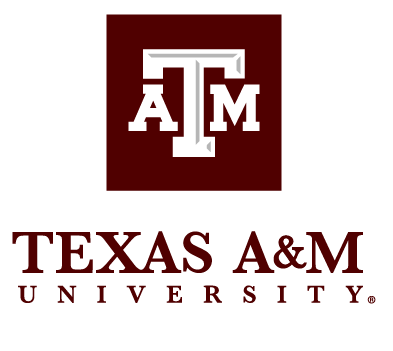MCS TaaSting

NEWS
View a preliminary version of this project at https://www.mcstaasting.com/.
The University of the Basque Country (UPV/EHU)
3GPP has engaged in an enormous amount of effort, along with the definition and publication of Release 13/Rel-14/Rel-15, towards the full definition of MCPTT (Mission Critical Push to Talk) /MCData/MCVideo communications over mobile broadband technologies. These aim to deliver services to users that at least equal the quality of existing narrowband services. In parallel, the 3GPP RAN WG5 and MCC TF160 started to specify test cases for conformance testing of these mission critical features. These test cases should be implemented in test equipment in order to support the certification programs for these mission critical functions. Unfortunately, the conformance testing standardization is still not fully completed and most traditional testing equipment manufacturers have been too busy with 5G to allocate resources for the niche mission critical communications market.
Meet the Team
Led by the University of the Basque Country (UPV/EHU), MCS-TaaSting gathers together leading organisations in MC communications, the most relevant industry associations and testing experts including Enensys, GridGears,, Nemergent Solutions, PSTA, Sonim, TCCA and Texas A&M University (TAMU).
The team is led by Dr. Fidel Liberal, a well-recognized expert in mission critical communications working in different mission critical communications and 5G related R&D projects including Mission Critical Open Platform (MCOP). He has also served as technical expert in all four ETSI MCX Plugtests™.
Nemergent Solutions is a company focused on providing and delivering mission critical communications according to the standardised 3GPP MCS suite of standards. With a core team with experience in both private and public R&D projects as well as a deep knowledge of the technology, the CEO of Nemergent Solutions, Dr. Jose Oscar Fajardo, brings to the consortium his expertise in managing development teams, testing teams and more than 12 years managing public and private projects.
TCCA established the world-leading interoperability testing process for TETRA terminals and infrastructure more than 20 years ago. Today TCCA is leading the way for mission critical broadband certification and driving the development of common global mobile standards for critical broadband. TCCA is also the guardian ofthe TETRA Professional Mobile Radio (PMR) standard. Harald Ludwig chairs TCCA’s Technical Forum and is technical expert for the ETSI MCX Plugtests. He brings more than 20 years of experience in the professional mobile radio industry and mission critical broadband LTE systems. .
The Public Safety Technology Alliance (PSTA) mission is to accelerate the conformance of open and standards compliant technology. TJ Kennedy as the Chief Executive Officer of PSTA brings to the consortium a 25-year career background, being in the past President of the First Responder Network Authority.
Enensys brings to the consortium their vast experience in testing equipment, procedures and certifications together with the knowledge of LTE procedures due to the acquisition of Expway and their eMBMS teams.
GridGears through Michael Proestler (CEO) and Andreas Liebig (CTO) bring to the consortium experience in systems within the public safety and defense sector, having designed and developed different mission critical services.
Sonim Technologies is a leading MC UE Vendor and will bring support on UEs testing.
Texas A&M University has become one of the leading public safety interoperability research centers in the world. TAMU, through Dr. Walter Magnussen brings to the consortium its clear commitment towards standardised 3GPP MCPTT communications and their advocacy to involve first-responders in the evolutions of LMR, P25 to the adoption of standardized communications.
Sub-Awardees
| Project Leader | Vendor Associations and Practitioners | MCS Experts | Testing Vendors |
|---|---|---|---|

|



|



|


|
Project Overview
As a result of conformance testing standardisation not being fully completed, the lack of certification programs has allowed the misuse of the MCPTT/MCData/MCVideo terms with vendors making ambiguous claims such as “3GPP aligned”, “MCPTT ready”, “MCPTT capable”, “MCPTT Forward-compatible” etc and jeopardising customer confidence.
Additionally, in traditional mobile phone testing environments, the Device Under Test is bundled (the whole protocol stack from physical LTE hardware, baseband modem firmware and mobile operating system to application - i.e. VoLTE-) in a final product, assembled and certified by a single vendor. This scheme is not directly applicable for MCS (Mission Critical Services) testing since most of the time the UE (user equipment) vendor is not the same as the MCS client provider. The customers themselves demand that the MCS provider is capable of deploying its clients on top of different UEs with minimal integration effort to avoid vendor lock-in and increase competition and innovation.
To address these issues, the main objective of the MCS-TaaSting project is the definition, development and validation of flexible MCS standards testing tools and associated certification procedures on a complete and accurate RAN5 Technical Specifications & TTCN3 code suite and tester.
Therefore, in MCS-TaaSting, following 3GPP RAN5 testing models, an MCS IP-based test engine will be developed. This tester will later be made available via both a) a cloud service using the new MCS Testing-as-a-Service paradigm and b) a LTEs- testing hardware.
The MCS-TaaSting project will also develop a streamlined testing process especially for mission critical services that will later be evaluated in a test lab environment to check not only the tester and test cases but also the defined certification processes. The testing processes will be aligned as far as possible with existing certifications processes from organizations such as the GCF (Global Certification Forum) and PTCRB.
Potential Impacts of the Project
The innovative MCS Testing-as-a-Service approach aims to fulfill the needs of the mission critical and public safety community in terms of compliance testing. It will allow the industry to prove the 3GPP standards-compliance of their implementations and will give the users and operators the confidence to buy compliant products. The MCS-TaaSting approach will also allow cost efficient regular and frequent testing, re-testing, certification and re-certification of the myriad and increasing combinations of devices, operating systems, middleware and applications. Potential beneficiaries include:
- Whole MCS Industry (including classical and new stakeholders)
- Test equipment industry
- MCS services developers (specially new stakeholders, SW companies)
- UE Vendors
- Purchasers (network operators, MC users)
- PSOs
- Certification Labs/institutions


